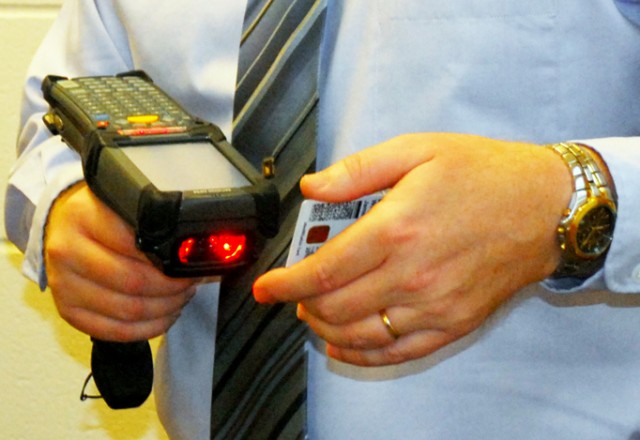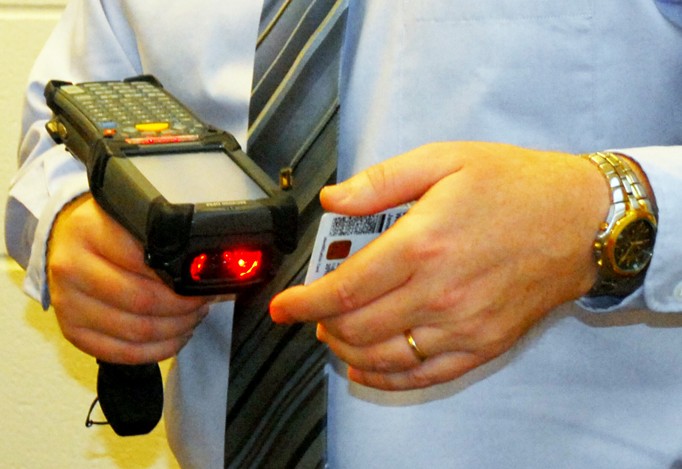FORT BENNING, GA - Fort Benning is staying "up-to-date" with a new security measure at the access control points on the installation, said Jim Webster, physical securities specialist for the Directorate of Emergency Services.
Beginning Aug. 17, security guards at the ACPs will use handheld ID card scanners to check the ID of every person entering post.
The scanners, purchased at $7,500 each from Intellicheck Mobilisia, can read CAC cards, contractor badges and most driver's licenses.
Georgia drivers' licenses are encrypted, Webster said, so people who use that as their ID when entering post will have to stop by the visitors center, either at I-185 or Fort Benning Boulevard, to pick up a pass. People who work on Fort Benning and have no other ID to access post will be issued an ID card that can be scanned by the handheld devices.
The scanner checks for expired or forged IDs, Webster said. It also runs a background check against a known database that includes the terrorist watch list and wanted criminals.
"It doesn't replace anything we're currently doing," he said. "It's just an additional tool to assist the security guards with ensuring personnel coming onto the base have proper ID and are authorized to be here. "One of our main focuses is the security of the installation for the Soldiers, the families, the civilians who work out here. That's always a top priority. Times change. We try to keep up-to-date."
The system was installed on Fort Benning by July 24, said Kenna Pope, executive assistant for Intellicheck Mobilisia.
Installation included training Fort Benning personnel on the system and installing the Internet connection through which data updates for the criminal database are received, she said.
Several installations from all services have the system, which has been in use for about five years, Pope said. The first Army post to receive the scanners was Fort Belvoir, Va.
It started on a trial basis in September 2006, said Frank Hentschel, deputy director for Emergency Services at Fort Belvoir.
Some people were concerned when it first started, he said, but they were reassured after learning that any personal data would be discarded after the check, if they were allowed to be on the installation.
After working with the system for nearly three years, Hentschel said it has increased their security posture and provided a helpful force protection measure for the installation.
The scanning system is just another method to "keep bad guys away," Webster said. He said he doesn't anticipate traffic coming onto post to be significantly affected, but post officials will work to minimize any delays.


Social Sharing